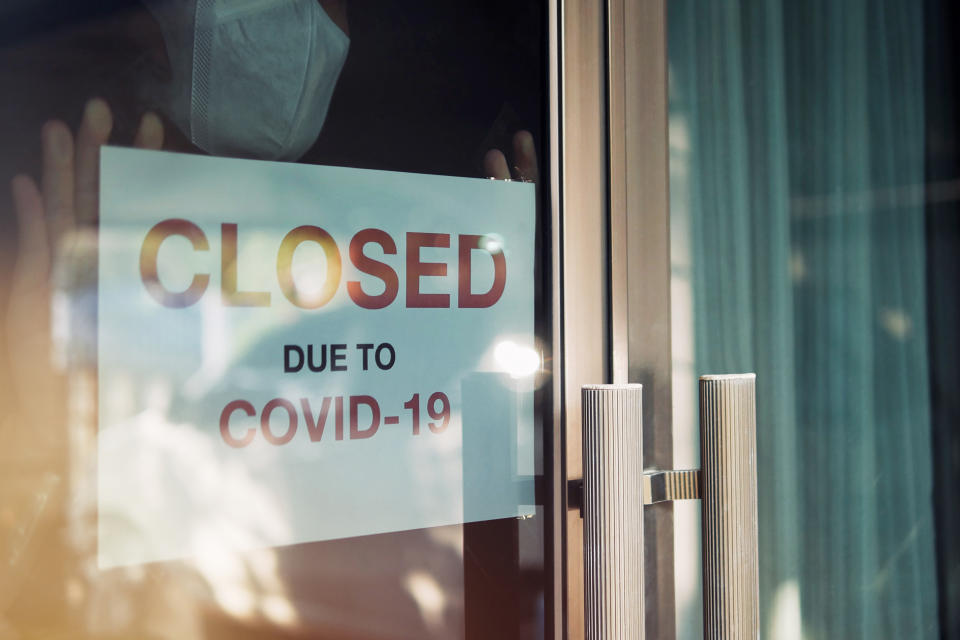Americans plan to spend more in these two areas as economy reopens
Americans have learned to live without during the pandemic and it appears decreased household spending will become the new standard as states reopen businesses and welcome tourists, according to a new survey.
Even with the overall tightening, Americans still are budgeting more for two areas of their lives: child care and charities.
Nearly half of Americans plan to reduce spending on entertainment like concerts, sporting events, theater, or movies, places where people are notoriously packed, according to a new survey from CreditCards.com. Only 12% plan to spend more on movie tickets, and just 14% intend shell out more for concerts, sports events or theater.
The survey also found that 38% plan to spend less in restaurants, 44% will cut back at bars, and 31% will spend less on gym memberships.
“It seems that social distancing mandates won’t be the only thing keeping crowds down at businesses moving forward,” said Ted Rossman, industry analyst at CreditCards.com. “A significant number of Americans plan to stay away on their own accord.”

There are three main reasons for the downshift in spending, Rossman said. People are still worried about contracting and spreading the virus. The money isn’t there for some individuals and families who have lost jobs or income. Or, some people aren’t missing the trappings of their pre-pandemic lives.
“There are still a lot of people that are unemployed or underemployed and money is tight and I think that's also a practical reason that some people are cutting back on it,” Rossman said, referring to the 11.1% of Americans who were unemployed in June.
Spending more on childcare

With financial priorities shifting away from entertainment and dining out, parents are focusing on child care. A third of working parents with school-aged children reported that their discretionary spending for child care will increase, as opposed to 28% who reported they will spend less when centers reopen.
“I think a lot of parents are bracing for a fall that is going to look different than previous falls,” said Rossman. “That's really put a strain on a lot of people.”
When lockdown measures began in March and April, parents found themselves stretched between maintaining productivity at their own jobs and homeschooling their children, often during competing hours of the day.
Rossman said parents are realizing that they might need more help if schools don’t reopen or hybrid schedules are introduced. Supplementing childcare with in-home help or daycare for younger children who require more hands-on attention might be where parents are headed.
A spike in supporting small businesses and charitable giving

One of the lessons of the pandemic is that recovery is a group effort. For nearly three-quarters of Americans, that means doing something nice or patronizing their neighborhood small businesses that was forced to close, operate at decreased capacity, or didn’t receive government stimulus money.
The majority of Americans say they will prioritize shopping at small businesses once it is safe to do so, according to new data from American Express. Top acts of kindness include tipping service providers more generously than usual (42%) and paying extra for services/back paying for unused services like haircuts and gym membership dues to compensate for lost business (11%).
Closely connected to the spirit of community is a streak of charitable giving that Rossman considers a “real silver lining” to the pandemic and the economic havoc it wreaked.
Charitable donations have nearly doubled with 28% reporting they will contribute more and only 14% planning to contribute less, the Bankrate survey found.
“Businesses will have to hope that customers change their minds and become more comfortable spending in these areas after all,” Rossman said. “They can also rely on the generosity of the many people who plan to spend more and tip better.”
Stephanie is a reporter for Yahoo Money and Cashay, a new personal finance website. Follow her on Twitter @SJAsymkos.
Read more:
Coronavirus puppy scams 'seemed legit,' ensnared dog lovers amid pandemic: Illegal Tender podcast
Coronavirus stimulus: Arizona Senator's $4,000 travel credit is 'one of the wackiest' ideas
Illegal Tender podcast: How 'MLM' schemes turn regular lives upside down
Follow Yahoo Finance on Twitter, Facebook, Instagram, Flipboard, SmartNews, LinkedIn, YouTube, and reddit.

 money
money 

